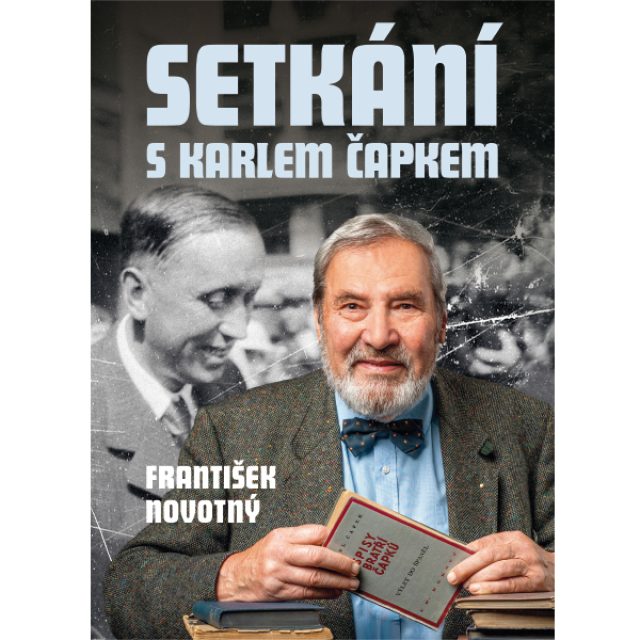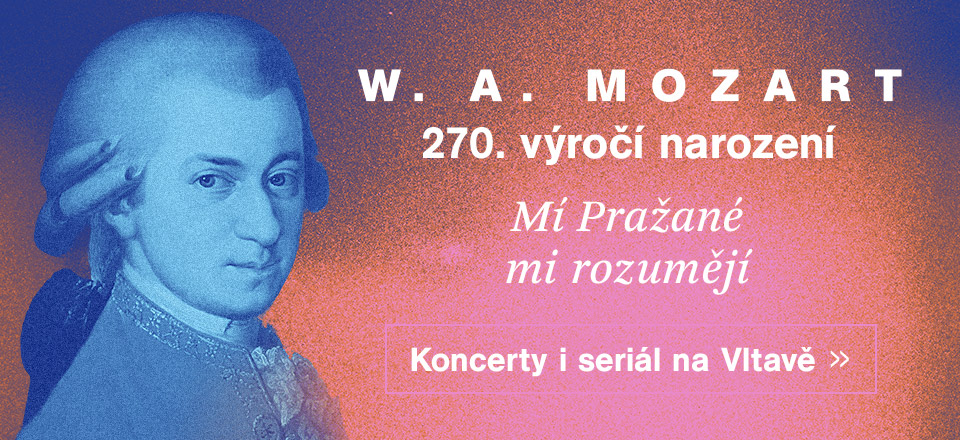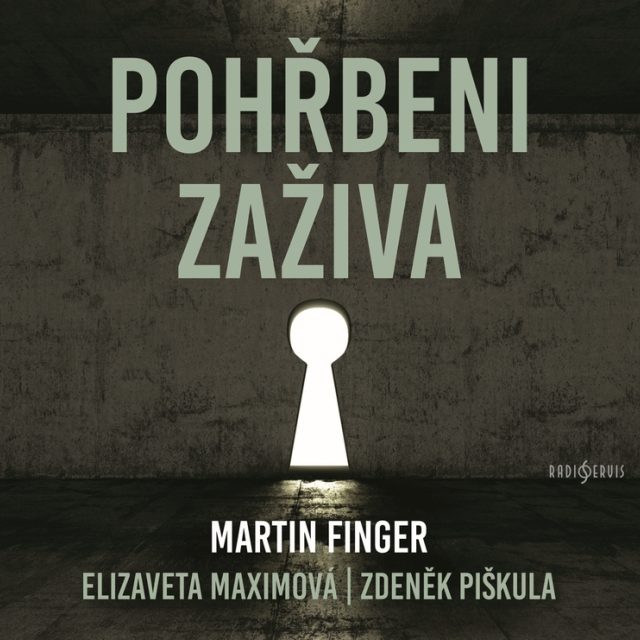František Xaver Dušek
* 8 December 1731 Chotěborky u Jaroměře† 12 February 1799 Prague
František Xaver Dušek (Duscheck, Duschek, Dussek) is today a bit better known to music lovers and the general public for being the husband of singer Josefina Dušková and Mozart’s host. His own work is relatively little known. And yet in the second half of the 18th century Dušek ranked among the preeminent personalities of Prague’s musical life, not just as a composer but also as a pianist and music teacher.
Dušek came from a very poor background, born into the family of a farmer in Chotěborky u Jaroměře and christened on 8 December 1731. It was only thanks to the sponsorship of Count Jan Karel Špork that he was able to study in the Jesuit gymnasium in Hradec Králové; he was prevented, however, from finishing his studies by an injury. With Count Špork’s support, Dušek went off, first to Prague, where he studied with František Václav Habermann, and then to Vienna, where he was taken on as a student by court harpsichordist Georg Christoph Wagenseil. After his return to the Czechlands, Dušek settled in Prague, devoting himself to composition and teaching (among his students were Leopold Koželuh, Jan Vitásek and Václav Vincenc Mašek); his house became a major music center.
Dušek was on friendly terms with the Czech aristocracy, in particular, with Counts Pachta and Clam-Gallas, a fact also substantiated by the great number of manuscripts of symphonic and chamber music in the castle archives of these two aristocrats, some of them dating from the 1760s. Even though Dušek continued to make Prague his permanent residence, he never lost contact with developments in international music: he had brought back from Vienna a knowledge of the contemporary music repertoire, and under Wagenseil he had become familiar with the works of J. J. Fux, J. S. Bach, G. F. Handel, J. A. Hasse and B. Galuppi.
On 21 October 1776 Dušek married his student, a singer who would later become famous as the "Czech Gabrielli," Josefina (or Josepha) Hambacher. The newlyweds soon went off to Salzburg, where Josefina had relatives, and the Dušeks came to know the Mozart family. Indeed, it was these friendly terms that later played a decisive role in Mozart’s being invited by Czech musicians to Prague. In 1784 Josefina Dušek came into ownership of a summer residence, Bertramka, which provided Mozart a quiet retreat during his stays in Prague (it was here that he completed the opera Don Giovanni and most probably La Clemenza di Tito too); and it became a well-known artist salon in Prague. At that time Dušek was concentrating primarily on teaching and composing piano works, and thanks to his relations in aristocratic circles, he worked occasionally in the academies.
Together with his wife, Dušek undertook several music tours around European cities and noble residences: he visited Vienna, Salzburg, Dresden, Leipzig and Warsaw. Notwithstanding the high regard which Dušek enjoyed in Prague’s music community, the end of his life was darkened by financial problems and it would seem also by illness. When he died on 12 February 1799, the musicians of Prague organized for him a solemn requiem mass in the Saint Nicolas Church conducted by Dušek’s student Václav Vincenc Mašek.
Among Czech composers active in the second half of the 18th century on their home territory, Dušek was undoubtedly one of the most important composers of instrumental music. The greater part of his work is made up of orchestral, chamber and piano pieces. He can be proved to be the composer of 37 symphonies, 20 string quartets, 21 string trios, 49 partitas for wind instruments, 5 serenades, 3 divertimentos, 13 minuets, 9 harpsichord concertos, 8 harpsichord concertinos, 28 two-hand and 7 four-hand harpsichord sonatas, 6 harpsichord sonatinas and 7 cycles of variations. The only authenticated vocal works are 5 children’s songs in a collection of 25 songs by V. V. Mašek (1792). Some of the manuscripts in the Pachta archives give dates in the 1760s (beginning in 1761). A number of works, all of which have unfortunately been lost or not yet rediscovered, are listed in Breitkopf’s catalogues from the years between 1771 and 1787. The most recent of his works is a printed piano sonata from 1796.
Dušek’s works thus were written in the period between the late Baroque and the highpoint of Classicism, similar to works, we might say, of Haydn. Dušek’s musical language proceeds from the solidly assimilated bases of the old Viennese school (Wagenseil) and develop into mature Classical expression like Haydn’s. In it we can also find the influence of the gallant style of the Italian manner (Hasse, Galuppi, Rutini) and the influence of the Berlin school (J. A. Benda and C. Ph. E. Bach), in particular in the slower movements of certain sonatas and concertos. At times we find Baroque elements. His symphonies have three or four movements; his string quartets, four. The sonata movements evidence classical structure (albeit of smaller dimensions); the final movements at times serve as early examples of an elaborated rondo form. The slower parts are imbued with a slight breath of melancholy and heightened expressivity. Dušek’s melodic inspiration also engages us with its occasional use of Czech melodic elements.
Author: Vojtěch Spurný
Nejposlouchanější
-
Jack London: Tulák po hvězdách. Román o utrpení a svobodě bezmocného jedince odsouzeného na doživotí
-
Jak obstojí Lízinka na škole pro popravčí? Poslechněte si mrazivě černý román Katyně Pavla Kohouta
-
Karel Poláček: Denní host, Nocturno. Dvě nestárnoucí humoristické povídky z noční Prahy 20. století
-
Raymond Chandler: Španělská krev. Detektivní případ rafinovaného využití vraždy pro politické účely
E-shop Českého rozhlasu
Přijměte pozvání na úsměvný doušek moudré člověčiny.
František Novotný, moderátor


Setkání s Karlem Čapkem
Literární fikce, pokus přiblížit literární nadsázkou spisovatele, filozofa, ale hlavně člověka Karla Čapka trochu jinou formou.




